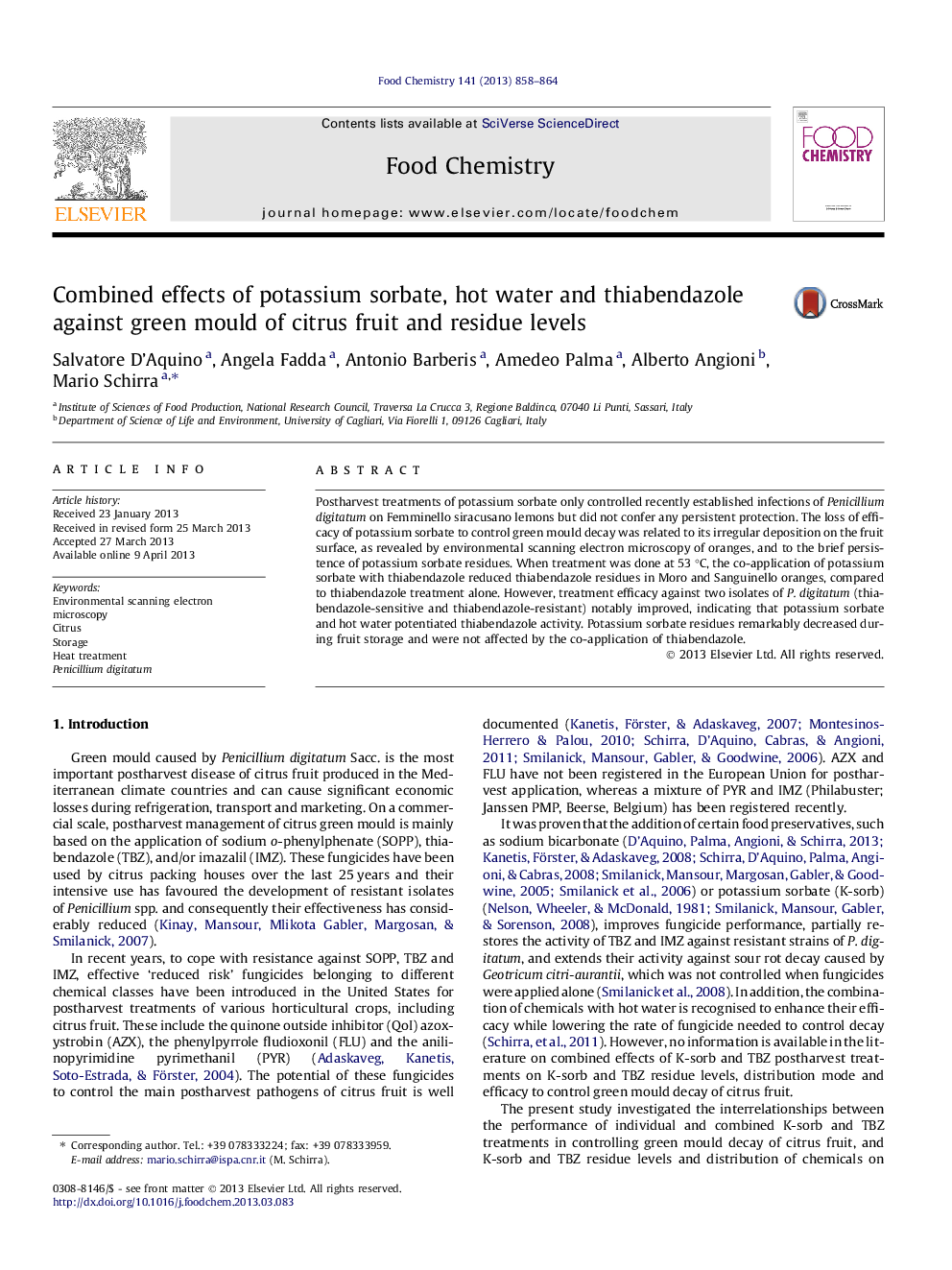| کد مقاله | کد نشریه | سال انتشار | مقاله انگلیسی | نسخه تمام متن |
|---|---|---|---|---|
| 1187111 | 963456 | 2013 | 7 صفحه PDF | دانلود رایگان |

• Potassium sorbate and hot water increased the thiabendazole activity against green mould decay.
• Potassium sorbate residues degradation and its irregular deposition make decay control less effective.
• The persistence of sorbate residues in fruit were not affected by co-application of thiabendazole.
Postharvest treatments of potassium sorbate only controlled recently established infections of Penicillium digitatum on Femminello siracusano lemons but did not confer any persistent protection. The loss of efficacy of potassium sorbate to control green mould decay was related to its irregular deposition on the fruit surface, as revealed by environmental scanning electron microscopy of oranges, and to the brief persistence of potassium sorbate residues. When treatment was done at 53 °C, the co-application of potassium sorbate with thiabendazole reduced thiabendazole residues in Moro and Sanguinello oranges, compared to thiabendazole treatment alone. However, treatment efficacy against two isolates of P. digitatum (thiabendazole-sensitive and thiabendazole-resistant) notably improved, indicating that potassium sorbate and hot water potentiated thiabendazole activity. Potassium sorbate residues remarkably decreased during fruit storage and were not affected by the co-application of thiabendazole.
Journal: Food Chemistry - Volume 141, Issue 2, 15 November 2013, Pages 858–864